
The movement of digital transformation is underway in every corner of Vietnamese life, strongly influencing the way people do things. Digital economy is the future of the Vietnam economy.

The movement of digital transformation is underway in every corner of Vietnamese life, strongly influencing the way people do things. Digital economy is the future of the Vietnam economy. Realizing the potential of the digital economy, the Vietnam government has issued policies, guidelines and created legal frameworks to support and further enhance this economy.
Vietnam's digital economy has been booming and is the second fastest-growing market in Southeast Asia. The Ministry of Information and Communications (MIC) stated that at the current pace, the value of Vietnam’s digital economy might reach USD 57 billion, accounting for 25-30% of GDP in 2025.
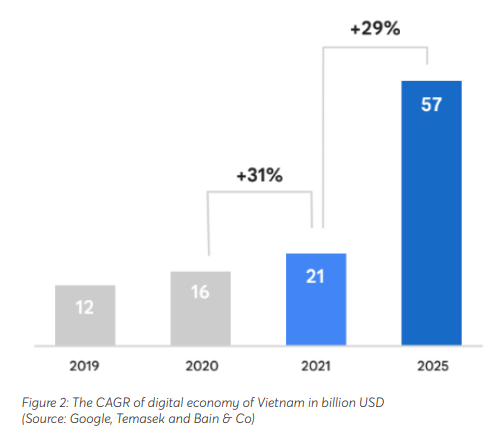
Vietnam’s market is large with a lot of potential for new business models. Covered by a large, young and dynamic population (3rd in Southeast Asia), Vietnam possesses a large workforce in the period of a golden population structure. Further, the number of smartphone and Internet users is increasing, creating attractive markets for the digital economy.
The government has paid attention to and decided to prioritize digital economic activities, which have been on the rise in recent years. The driving force behind the development of the digital economy in all sectors and industries is a strong growing foundation with a focus on national digital platforms, which starts with the rapid adoption and support of the Government. At the same time, Vietnam has defined strategic objectives in information security. In particular, at the country level, 2-3 R&D centers in information security will be established. Meanwhile, 100% of ministries, branches and localities ensure information security in 4 layers.
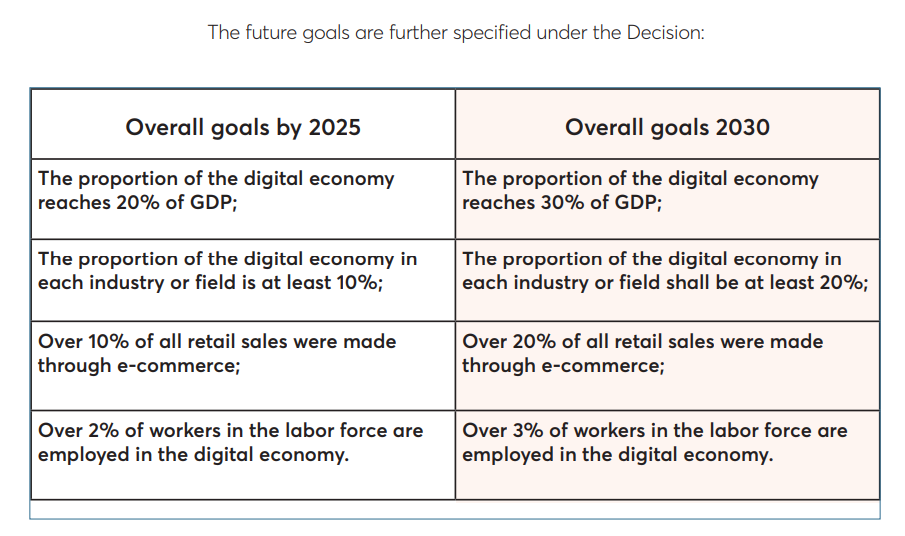
Startup ecosystem’s contributors offer a variety of support programs and services based on 5 thematic pillars of assessing SME support policy: responsive government, entrepreneurial human capital, access to finance, access to markets, and innovative business support.
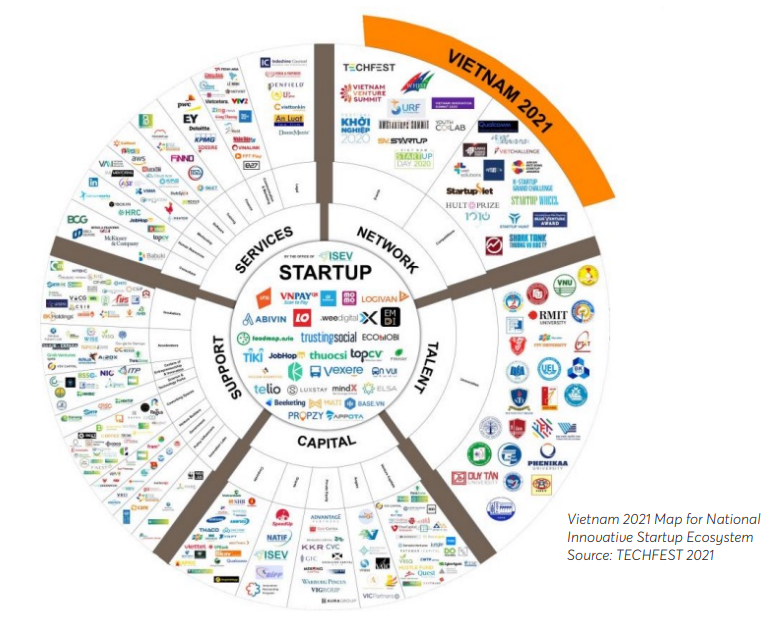
Up to now, digital transformation has been implemented in all types of enterprises across Vietnam at different levels from B2C to B2B and even B2G, and on both fronts: client-facing activities and internal operations. The report “Digital Development Index of Small and Medium-sized Enterprises in Asia - Pacific” by Cisco indicates that Vietnamese small and medium enterprises are investing in Cloud Computing technology (18%), network security (12.7%), and upgrading software and hardware for digital transformation (10.7%).
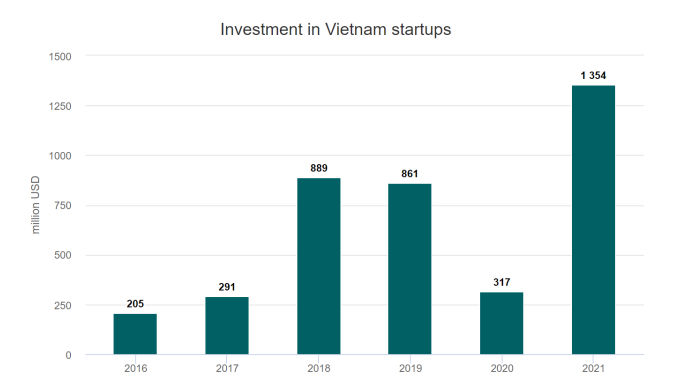
Nearly 70% of Vietnamese adults are banked, among which 5.5 million accounts and approximately 8.9 million bank cards have been opened electronically; and 1.77 million Mobile Money accounts have been opened, of which more than 67% are in rural, remote and isolated areas.

Vietnam’s e-commerce is becoming a prime market for foreign investment and quickly catching up with its ASEAN peers. B2B e-commerce in Vietnam is thriving in the near future. Although the B2B model is much more challenging than B2C due to customer quantity, large order size and more complex contracts, several successful B2B e-commerce businesses predict strong growth for this model in the coming years. Moreover, niche markets possess huge hidden potential. By learning deeply about the culture and consumption habits of the Vietnamese to identify a niche, small businesses could gain great benefits, without confronting big players who have powerful financial capabilities.
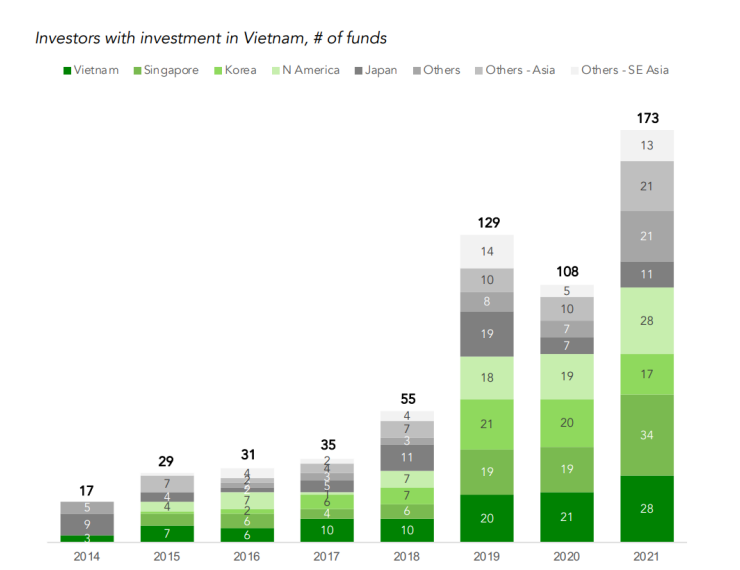
However, these opportunities are also the barriers to rural consumers. Currently, about 80% of e-commerce serves the urban market mostly in big cities like Hanoi and Ho Chi Minh City. The majority of the Vietnamese population are still scattered across distant areas, which makes it more expensive and challenging to operate rapid delivery.
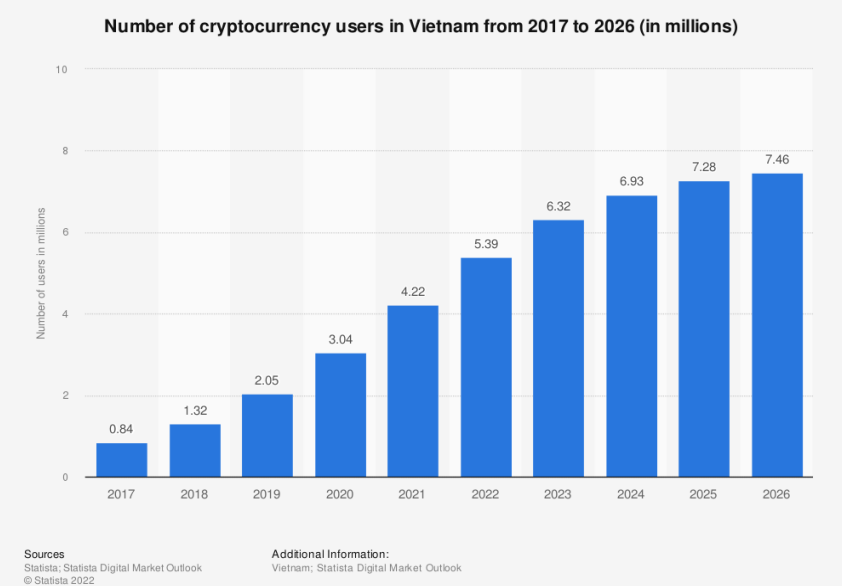
Blockchain technology, the core technology behind cryptocurrencies, has made significant progress in Vietnam in recent years. According to Statistic estimates, as of 2021, 4.28 percent of the Vietnamese population (equal to more than 4.22 million individuals) own cryptocurrencies, and by 2026, this number could reach 7.46 million people. Moreover, Vietnamese users of crypto trading websites and platforms are among the top five worldwide.
Digital transformation holds tremendous potential for Vietnam to achieve not only sustained but also inclusive economic growth. To reap the full benefits while managing the associated risks and vulnerabilities, Vietnam should prioritize investment and regulatory reforms to reinforce these six building blocks.
Source: Viettonkin Consulting